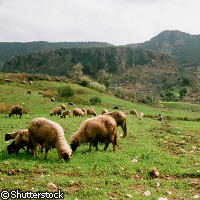Religious beliefs linked to agro-pastoral practices
How should we use environmental resources to make sure we have what we need both now and in the future? Answering this question often means thinking about some immense challenges, such as climate change, migration and population growth. But what about religious beliefs and their impact on land use? Experts from the Universitat Autònoma de Barcelona (UAB) in Spain warn that although people's beliefs should not be overstated or idealised, they should not be ignored either. Results from the EU-funded study are published in the journal Human Ecology. In the introduction to their paper, Dr Pablo Dominguez and UAB colleagues point out that for several decades now two opposing schools of thought have persisted with regard to communal land use and natural resource management. Critics consider that the unregulated use of natural resources based on communal property is neither sustainable nor in synch with the spirit of cooperation. Advocates of communal land use frameworks believe that social, political and religious institutions have an impact on the socioeconomic management of communal property and on ecological conservation. Although it has been suggested that the phenomena could be linked, until now research in this area has tended to overlook the role of religious beliefs in the management of territory and communal natural resources and change processes. With funding support from the Marie Curie scheme of the EU's Sixth Framework Programme (FP6), the UAB team conducted a case study on the Amazig (Berber) people in the High Atlas Mountains of Marrakech, Morocco. The question for the researchers was if and how individual religious beliefs in local saints guide the way local resources are managed. The community abides by regulations that are based on a traditional framework of communal property management. Throughout history, the Amazig people have followed a rule that prohibits access to common pastures in spring so that they can produce better grazing conditions in summer. Known as 'Agdal', this prohibition period is deeply rooted in religious beliefs and practices. The researchers interviewed and observed members of the Amazig people of the Mesioua tribe between 2003 and 2008, and conducted a survey of 80 households in the village of Warzazt (south-central Morocco). They found that a relationship does indeed exist between the transformation of traditional individual beliefs in local Islamic saints and new agro-pastoral practices (previously linked to the disappearance of Agdal-managed pastures and biodiversity loss). In particular, they noted an association between the abandonment of traditional beliefs in saints and both agricultural expansion and the introduction of a new breed of sheep (the cross-bred Sardi). The UAB team observed that cultivating more land and owning more sheep, for instance, did not seem compatible with traditional beliefs in saints. The researchers write that this new strategy 'is more individualistic, generates shorter term benefits, and opposes the saints' old philosophy that promotes communal management and long-term benefits.' The research suggests therefore that along with the erosion of religious beliefs among the Amazig people comes less emphasis on future environmental sustainability. The authors conclude that religious beliefs should be added to the list of factors (e.g. climate change, population increase, migration, technical advances, economical reasons) that change as the use of natural resources change. 'What our study highlights is that individual religious beliefs, or lack of them, can also be an important element in the use of agro-pastoral resources.'
Countries
Spain, Morocco



